Thousands Mark May Day In France, Spain And Berlin
Thousands rallied on Saturday in France, Spain and Berlin to mark May Day in the midst of the Covid-19 pandemic as police scuffled with protesters in Paris and fired tear gas.
A police source told AFP that far-left "black bloc" protesters had repeatedly tried to block the trade union-led march in the French capital, where 46 people were detained.
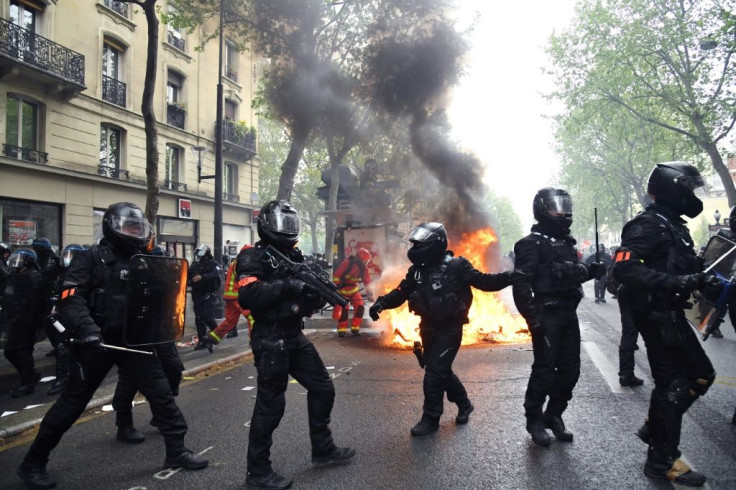
Some protesters smashed the windows of bank branches, set fire to dustbins and threw projectiles at police, who responded with volleys of tear gas and stingball grenades.
About 5,000 police were deployed in Paris, a police source said.
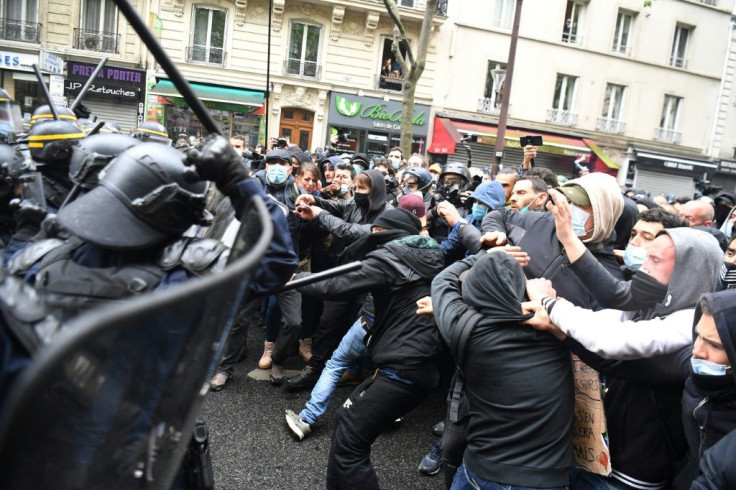
The CGT union said nearly 300 May day protests were planned around the country. It later claimed a total national turnout of 170,000, with 25,000 rallying in the French capital.
The French interior ministry put the national figure at 106,000 and the Paris turnout at 17,000.
The crowds held placards with different demands, ranging from the end of the nighttime curfew in place as part of coronavirus restrictions, to a halt to unemployment reforms due to come into force in July.
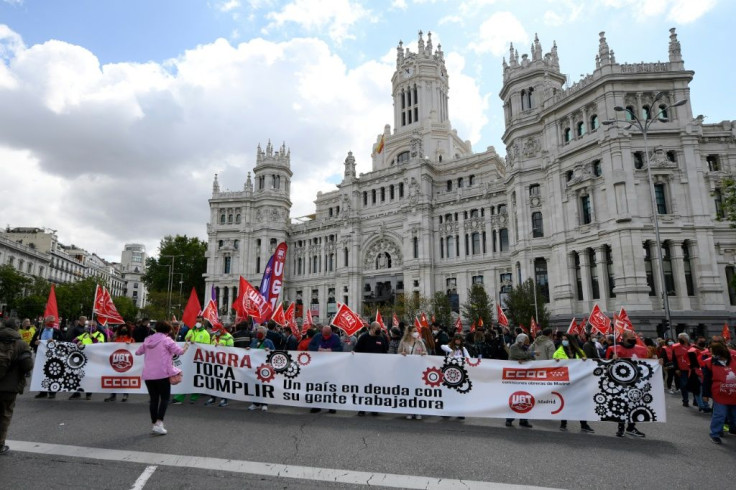
"We have many reasons to come and rally -- the health and social situations and the general impoverishment of society," said Ivan Gineste, 50, who works in a high school in the southeastern city of Lyon.
Members of the yellow vest anti-elite movement, which rocked Emmanuel Macron's presidency two years ago before largely fizzling out, could also be spotted at protests up and down the country.
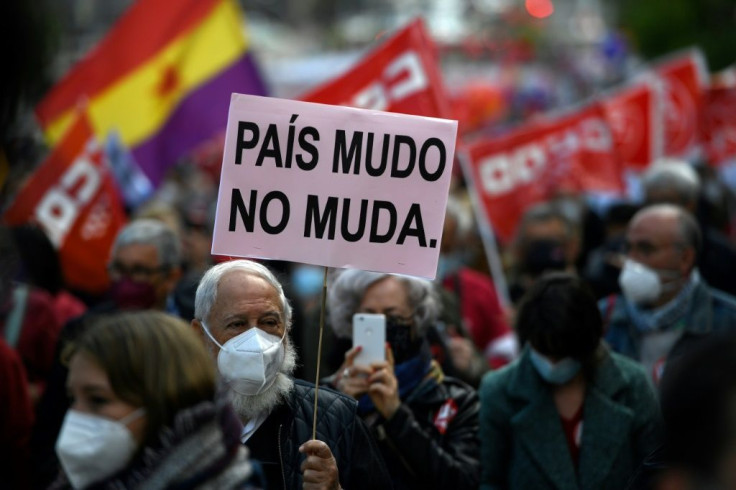
"There are so many motivations for a revolt that are building up -- the management of Covid, the so-called reforms that are going to take away people's ability to live, job-seekers who are going to lose their benefits," said a pensioner who gave her name as Patricia.
"We absolutely need to express ourselves," the 66-year-old said.
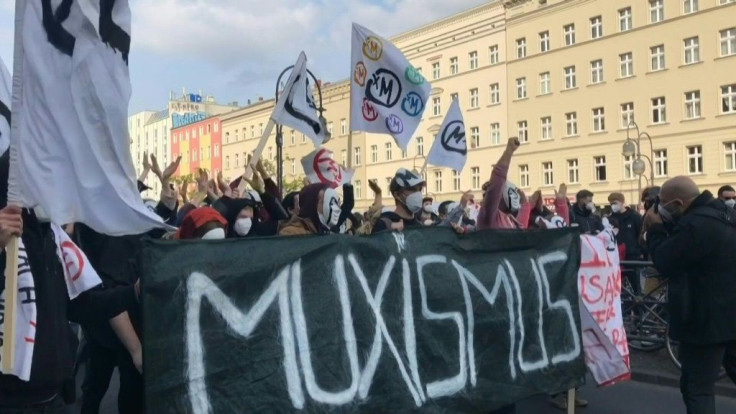
In Berlin, police made several arrests and used tear gas after stones and bottles were thrown as some 5,000 people rallied following a call by left and far-left groups.
Organisers said around 20,00 people gathered to march to the nearby traditionally radical leftist Kreuzberg district.
Local media reported the situation calmed down around 2000 GMT after the capital's police tweeted they were ready to deploy water cannon to put out burning wooden pallets to ensure the flames did not reach parked cars.
Some 5,600 police were deployed in the city where over 20 rallies were scheduled to be held over issues ranging from rising rents to Germany's immigration policy and opposition to coronavirus curbs.
Thousands also rallied in more than 70 cities across Spain in the first Labour Day demonstrations since the pandemic began.
Wearing masks and observing social distancing, demonstrators marched through the streets waving banners although in many places, numbers were capped to ensure anti-Covid measures were respected.
The main demonstration in Madrid, which was limited to 1,000 people, began at midday under the slogan "Now it's time to deliver" with the participants marching from the town hall to the city's Puerta del Sol square.
Seven government ministers attended the march, including Labour Minister Yolanda Diaz as well as representatives of the three left-wing parties running in Tuesday's regional election in Madrid.
At the rally, union leaders Pepe Alvarez of the UGT and the CCOO's Unai Sordo urged the government to honour commitments delayed by the pandemic, such as repealing a controversial labour reform, raising the minimum wage and approving a law on equal pay.
"The crisis has made us face up to an outdated labour model, based on casual work, seasonal employment and inequality... which is exactly what the labour ministry has started to change," she said.
© Copyright AFP {{Year}}. All rights reserved.





















